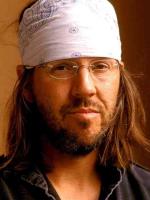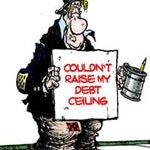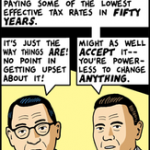 David Foster Wallace is the kind of person I wanted to be when I was younger. He was not only a great writer and thinker, but he was also good at the kind of things that I’m good at — namely math. But now, I’m just very happy to have lived in a universe where David Foster Wallace wrote novels and essays. I’m a better person because of it. Had Wallace been happy, that would be one thing. But he suffered from great depression throughout much of his life and he eventually took his own life.
David Foster Wallace is the kind of person I wanted to be when I was younger. He was not only a great writer and thinker, but he was also good at the kind of things that I’m good at — namely math. But now, I’m just very happy to have lived in a universe where David Foster Wallace wrote novels and essays. I’m a better person because of it. Had Wallace been happy, that would be one thing. But he suffered from great depression throughout much of his life and he eventually took his own life.
But a couple of years before that, he gave a commencement address Kenyon College. The resulting speech was an essay, “This Is Water.” The title refers to a common observation that fish don’t “see” water. The thing that they are literally swimming in is invisible to them. Similarly, humans existed for tens of thousands of years without ever recognizing that the sky had a color: blue. It is this fact that had long mistakenly been used to claim that Homer must have been blind because of his odd color descriptions.
The argument that Wallace is making is that we need to try to see the water. We don’t want to go through life effectively dead. And we mostly do. So much of life is habit. We operate on autopilot. And it is really for the best for us to question a lot of our easy assumptions. He goes into some depth, but not about politics or philosophy. Rather, he suggests moving past our self-centered world and trying to see things from other people’s perspectives. As an example, he describes being stuck in traffic and rather than cursing the people in front of him, imagining that in front of him is a father rushing his sick daughter to the hospital. It probably isn’t what is actually happening, but it does get us out of our default perspective that all that really matters is ourselves.
Where I think Wallace gets into troubling territory is when he suggests that a liberal arts education might be good for doing this kind of thing. I understand: he was talking to graduating college students. And things might be different at Kenyon College. I do think that a liberal arts education ought to be good for this. But the way higher education is now managed, it isn’t much more than a product. A liberal arts degree means that the student has taken an undergraduate writing class and an upper division literature class. She’s taken one or two history classes. Generally, she’s taken a little of this and a little of that and there is very little that brings it all together.
Even more than this, I fear that college is mostly just another system of control. More than anything, a college degree says, “This student is unlikely to upset the corporate order.” Indeed, that’s largely what we see among the upper-middle class liberal writers: people who know just how much they can push against the existing power structure. And their college educations are largely the reason that it doesn’t occur to them that pushing harder might be a good thing.
I do think that a broad and varied liberal education is really helpful in seeing what is meaningful in life. But it isn’t essential. And there are many for whom such an education means nothing other than maybe a better job. But if it does expand your perspective, I’m not sure that’s so great. I feel that I’m fairly good at seeing things from different perspectives and giving people lots of benefits from the constant doubts. And I certainly feel I’m a better person now than I was before. But I’m not happier as a result. In fact, the more I feel that I see society clearly, the more I am a prisoner of a profound sadness.





